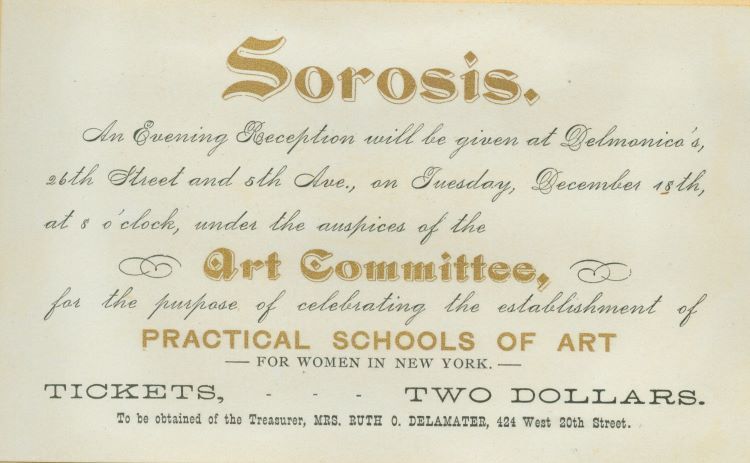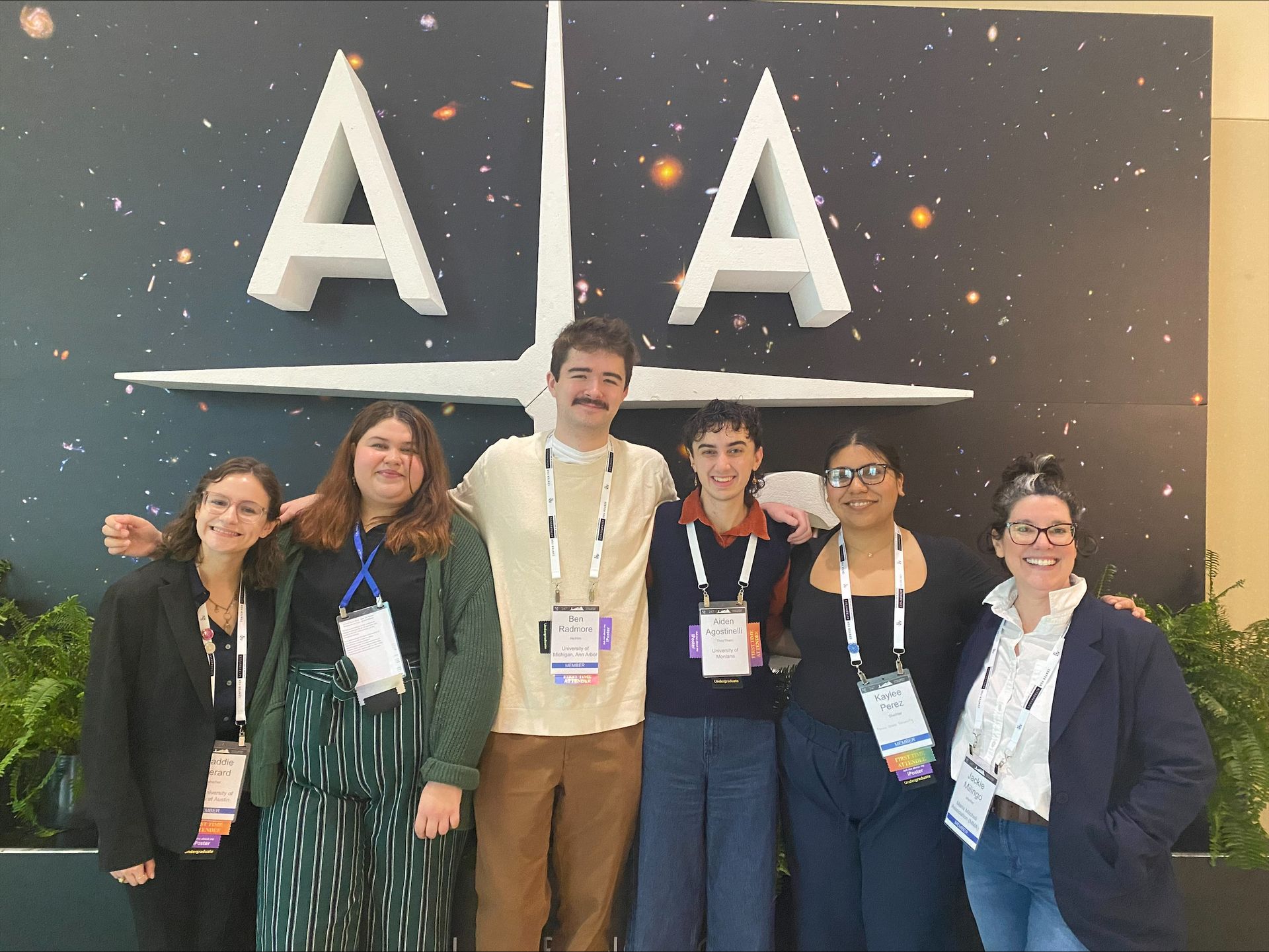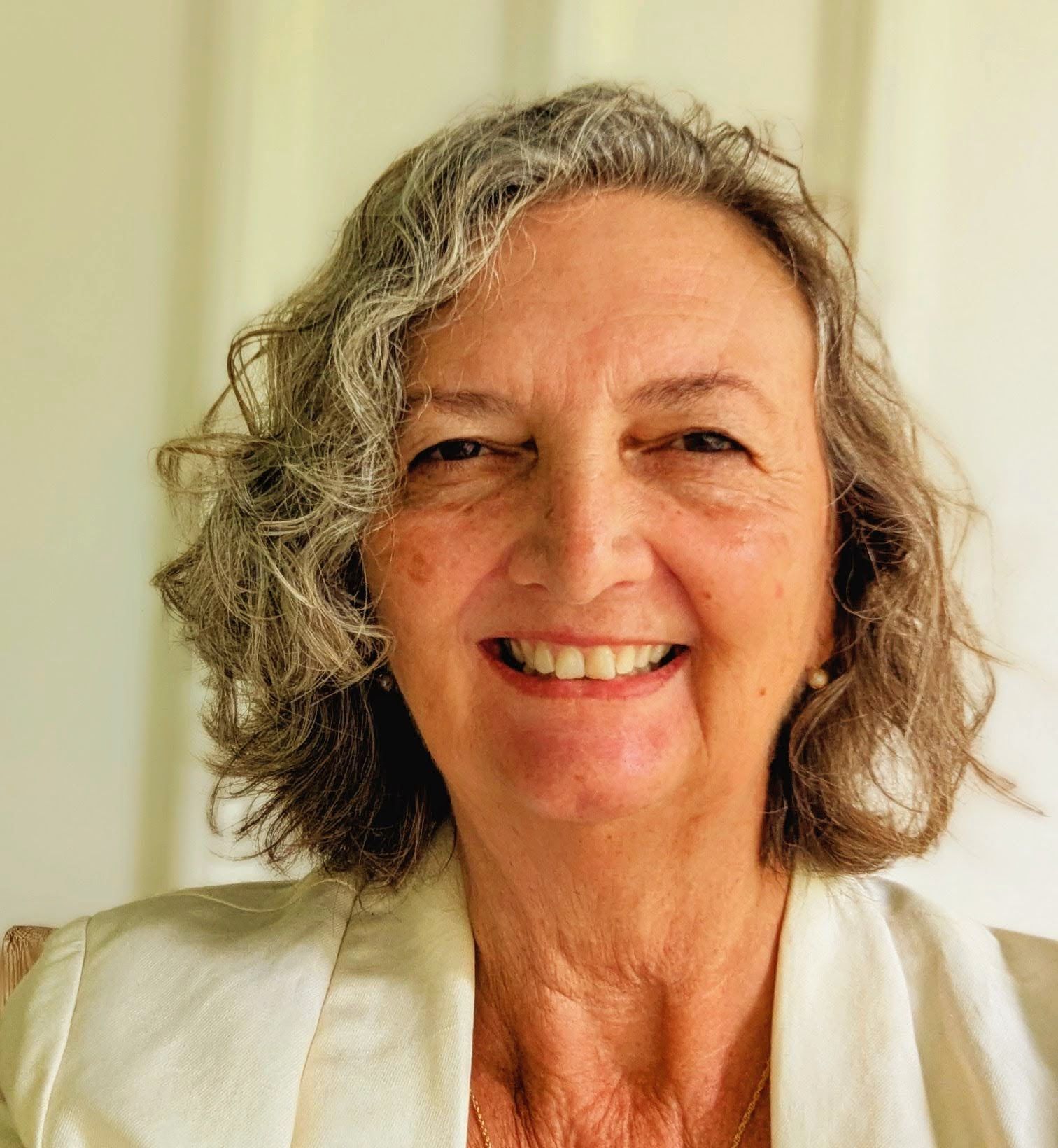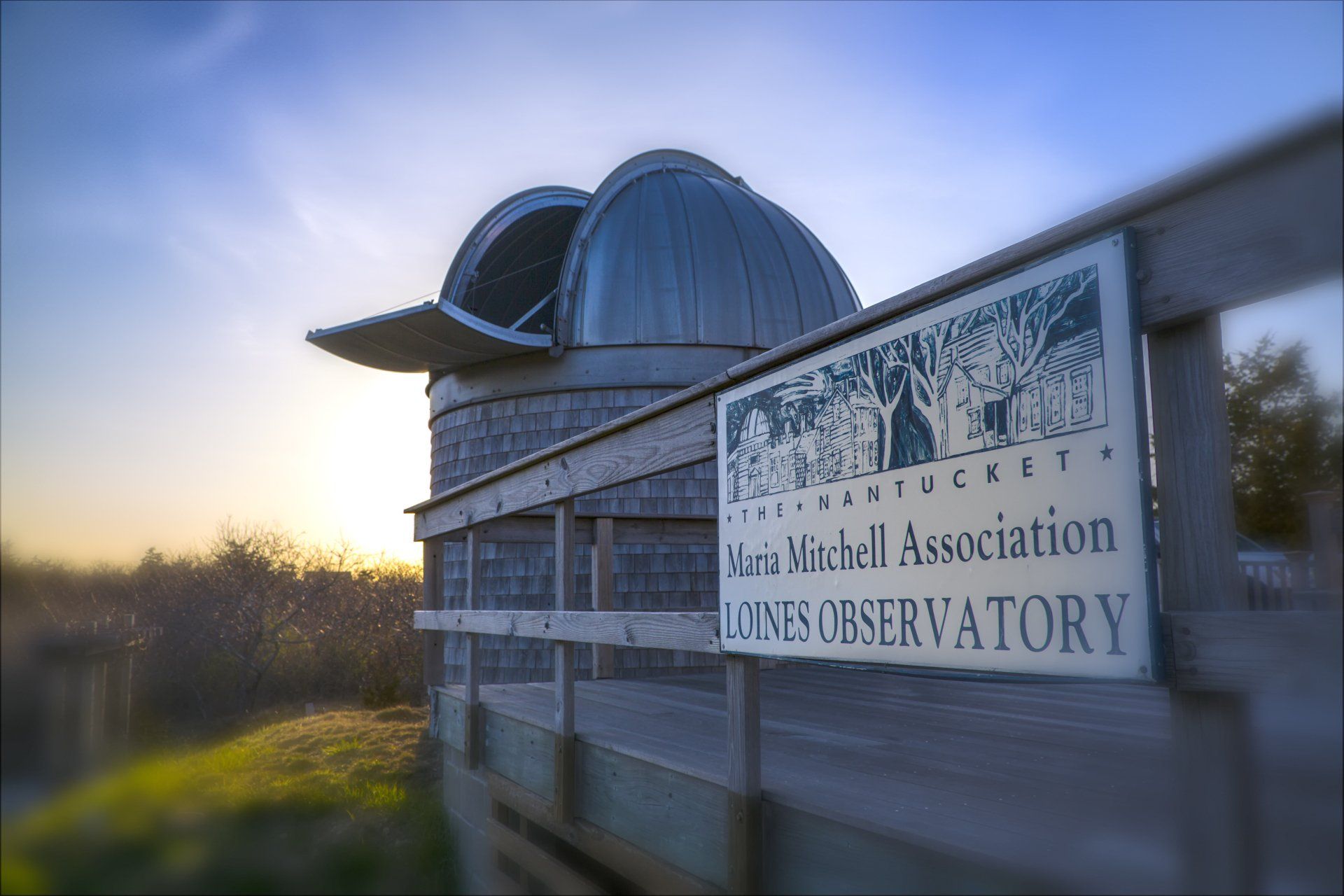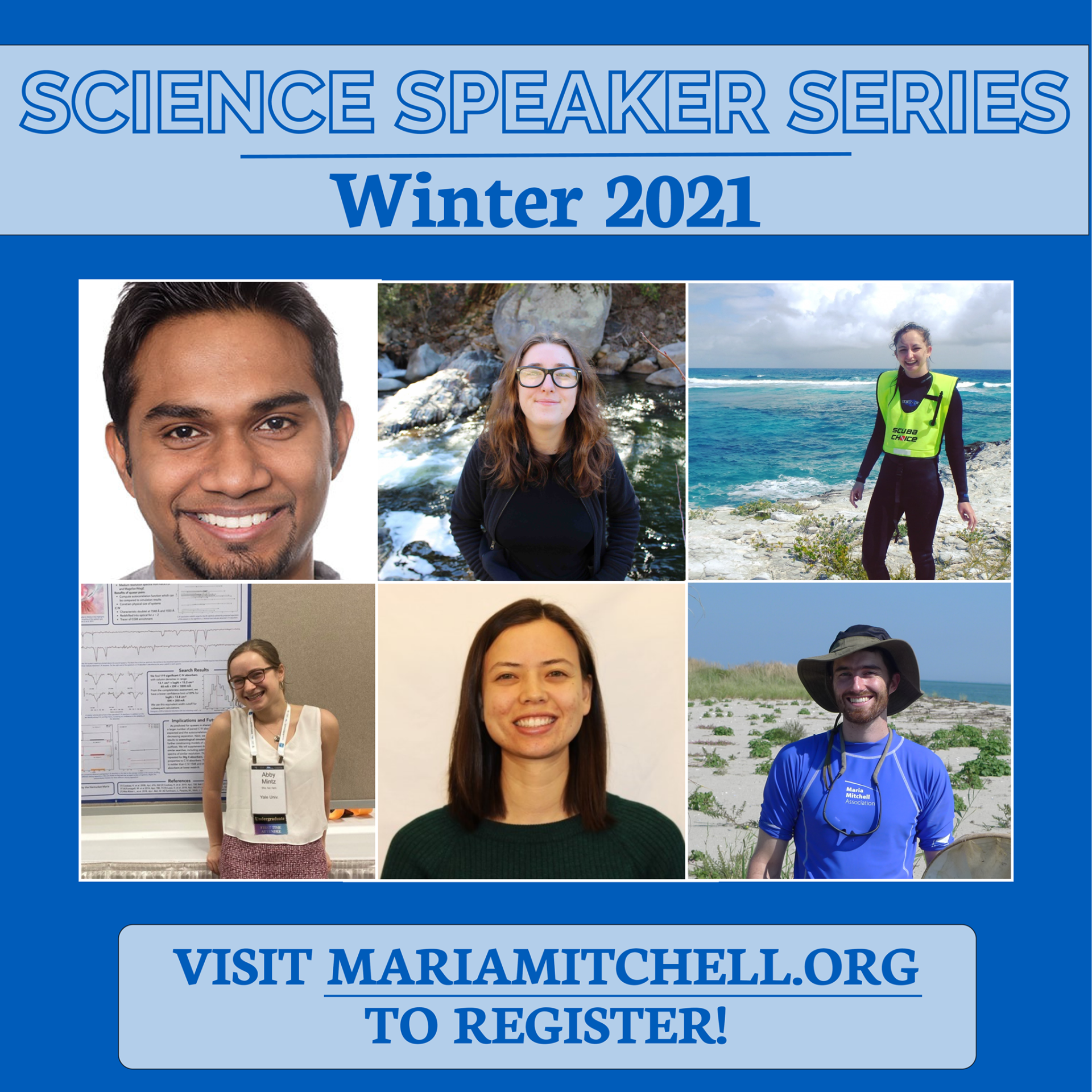Nantucket Maria Mitchell Association Winter Science Speaker Series
Join the Nantucket Maria Mitchell Association this winter as we welcome back some of our amazing intern alumni to discuss their fascinating research and projects. Topics will include open science, terrestrial biology, astronomy, and more!
This free speaker series is scheduled for alternating Wednesdays between January 13th – March 24th, 7:00 PM – 8:00 PM EST via Zoom. To register for a talk, please visit our website:
https://www.mariamitchell.org/learn-discover/2021-winter-speaker-series
Read more below for the full schedule and presentation abstracts from each speaker.
Sharing is Caring: Data Sharing for Scientists and Citizens
with Andrew Mckenna-Foster
January 13, 7-8pm via Zoom
From civic apps to COVID treatments, a new paradigm of data sharing affects all of us in significant ways. In this talk, Mckenna-Foster will discuss how new technologies, policies, and practices encourage free access to data and are together changing how scientists and governments work. He will share how his formative experience working at the MMA led to a new career in the data sharing world.
Splitting up a complex mess: Integrating Statistics to Understand the Limnonectes kuhlii complex
with Sara Schoen
January 27, 7-8pm
41% of known amphibian species are declining, but have you ever considered the decline of the species we have yet to identify? As a conservationist, it’s terrifying to think about because we won’t notice until the loss is irreversible. Some species are cryptic, meaning we don’t notice them, others are cryptic because they look almost identical to another species. These similar species can be lumped together into a single species and accidentally create a species complex. Species complexes hinder conservation efforts because the populations seem stable and healthy, but what if they aren’t a single species and we treat them like one? What happens when we lose one? Will we only know what we’re missing when it’s gone or is there another way? The good news, species complexes are a difficult, yet solvable problem. We just need some help from statistics to create new tools to delimit species complexes and define clear differences between species. This is the only way to understand declining populations and define biodiversity in an area.
Unraveling the Universe with Spectroscopy and Big Data
with Tanveer Karim
February 10, 7-8pm
The Dark Energy Spectroscopic Instrument (DESI) is an upcoming cosmological survey and experiment that will create the most precise 3D map of the Universe to-date by mapping the positions of 30 million galaxies spanning the past 11 billion years. By precisely measuring the position of these galaxies, DESI will try to shed light on the mysterious Dark Energy, the leading explanation for the accelerated expansion of the Universe, as well as test Einstein’s Theory of Relativity at the largest scales. In this talk, Karim will be discussing what dark energy is, how DESI works, how we plan to measure distances of such a large number of galaxies, and what interesting sciences we can expect over the next ten years. In particular, Karim will be discussing how he is using DESI data along with cosmic microwave background (the earliest relic light of the Universe) data to figure out how matter is distributed in our Universe.
From Near to Far: Exploring How Stars Form and Galaxies Evolve
with Abby Mintz
February 24, 7-8pm
How do stars and galaxies form? Surprisingly, there is a lot about these processes that is still unknown! To shed some light on these mysteries, we will take a look at star clusters in our local neighborhood and then travel to distant galaxies billions of lightyears away. We will learn about how massive stars’ turbulent shockwaves impact star formation in their environments and locate the missing matter in faraway galaxies to see what it can tell us about their pasts and futures. How did our Universe get to its current state? Let’s find out together!
The Debris Diet: How Microplastics are Infiltrating the Marine Food Chain
with Izzy Gaw
March 10, 7-8pm
One of the most pervasive anthropogenic stressors facing marine life today is plastic debris. In 2010, an estimated 4.8 to 12.7 million metric tons of plastic waste entered the ocean, and these input estimates are slated to increase by an order of magnitude by 2025. One of the most challenging aspects of marine debris management is that over time plastics break down into microplastics (<5 mm in size) for which the total degradation time is unknown. Not only are these ubiquitous microplastics contaminating marine fauna and their habitats, but they also have the potential to absorb pollutants thus posing a threat to ocean food webs. After fauna ingest these pollutant-absorbent microplastics, the toxins can bioaccumulate and biomagnify, which can negatively affect fish behavior and physiology. While the effects of pollutant-absorbent microplastics are relatively well studied, the baseline physiological effects of uncontaminated plastics are not well understood. This talk will explore how fauna ingest these microplastics and what happens to the microplastics inside their bodies.
Hidden Patterns in Galaxy Motions: What They Can Tell Us About the Universe
with Rachel Bowyer
March 24, 7-8pm
Galaxies move at hundreds of miles per second through space, yet they are so far away, that they appear stationary to us on Earth. However, recent advancements in observing techniques have made it possible to observe the motion of hundreds of thousands of galaxies all across the sky. These observations are revealing complex, streaming and swirling patterns in galaxy motions that are rich in information about our Universe’s formation and evolution. Specifically, these motions can tell us about the formation of structure in the Universe and about primordial gravitational waves. In this talk, Bowyer will discuss the emerging field of “real-time cosmology” and how patterns in galaxy motions can be used to study the early Universe.
This series is organized by the Maria Mitchell Association, a private non-profit organization. Founded in 1902, the MMA works to preserve the legacy of Nantucket native astronomer, naturalist, librarian, and educator, Maria Mitchell. The Maria Mitchell Association operates two observatories, a natural science museum, an aquarium, a research center, and preserves the historic birthplace of Maria Mitchell. A wide variety of science and history-related programming is offered throughout the year for people of all ages.
For Immediate Release
January 12, 2021
Contact: Kelly Bernatzky, MMA Development Associate
Recent Posts
